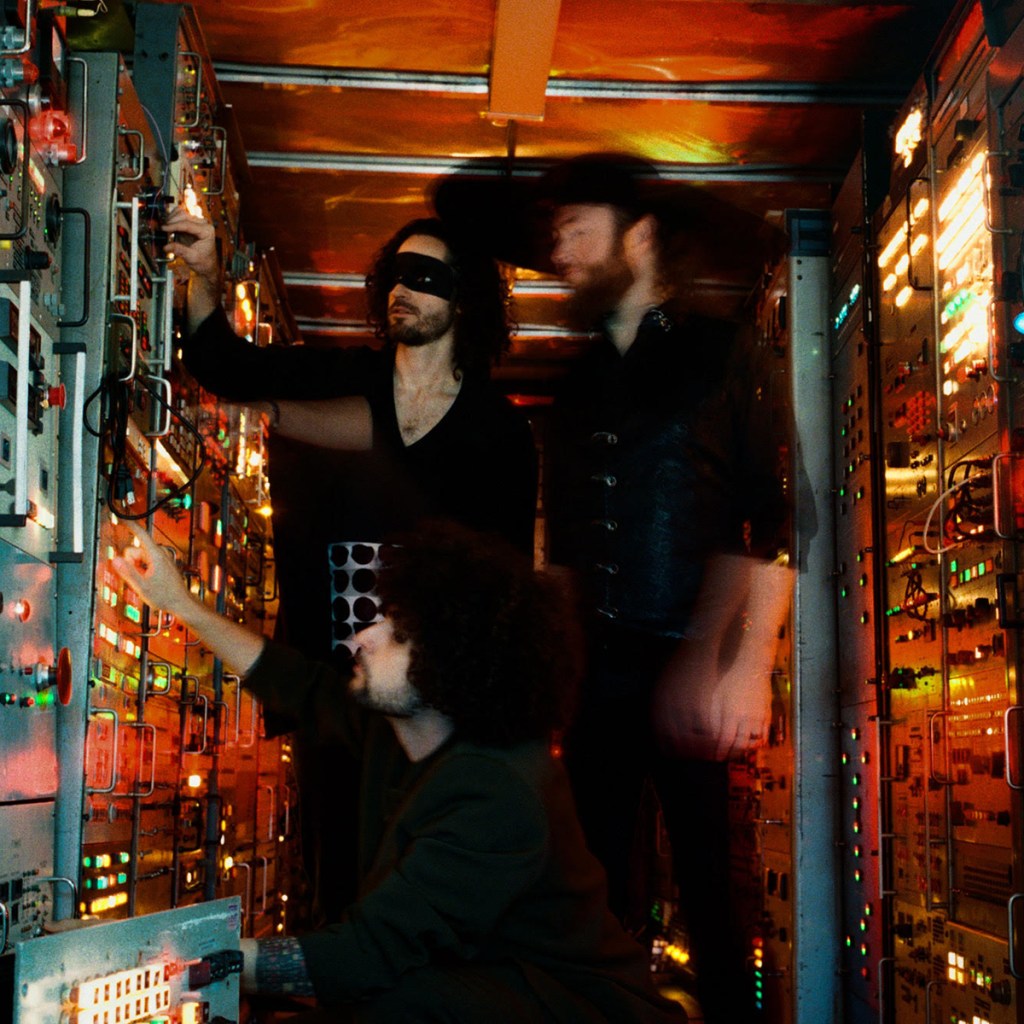Ross Olson is still waiting on that Folk Implosion “natural One” mixed with “Stupid Girl” by Garbage mash-up.
The inspiration behind one of the most whimsical tracks on To Operate This System – the collaborative project between art-rap polymath Rhys Langston and the psychedelic cosmonauts Pioneer 11 – started with a longing for affection.
If you have ever had a cat you’ll understand. Whenever Langston craves the attention of his tabby, Tahini, she’s wayward and grazing in the bushes outside. This condition sparked “My Kitty Left On a Rocket That Launched”, an aching lament that offers a window into the group’s creative synergy. The formula is simple yet impossible to replicate. Pioneer 11– consisting of bassist Alex Hastings and singer/guitarist Brian Gomez – deliver the central grooves and galactic transmissions, while Langston’s acrobatic musings on technology and human nature orbit around it. You’re left unsure whether to surrender to the spaced-out funk or ruminate quietly in the corner.
At first glance, the collaboration might seem a bit curious to the uninitiated. Aside from 2022’s Grapefruit Radio, where Langston outsourced most of the production and fielded guest spots from fellow indie rap iconoclasts, the Leimert Park rapper has largely operated as an uncompromising soloist. He executes the full scope of his artistic vision largely on his own with each release, whether that’s recording multiple instruments, painting cover art from scratch, or writing 100-page manuals to accompany the project. Deferring a large chunk of the creative process was going to be an adjustment. But after meeting Gomez and Hastings in 2018 at an anniversary show for Dublab, the POW labelmates quickly learned their creative tendencies could easily gel.
Known for their infectious cosmic odysseys, Pioneer 11 prefer to create in a more off-the-cuff, improvised style. They developed a looping rig to enhance their jam sessions, isolating specific riffs and grooves while workshopping different ideas around it. Never one to shy away from the unfamiliar, Langston jumped in seamlessly, experimenting with flow and melody while adding layers of synth and clarinet. Pioneer welcomed the opportunity to bring an emcee into the fold at their home studio, especially since the pandemic forced the group’s UAP project with Bryson the Alien to come together through online file sharing. What you hear on To Operate This System came directly from the looseness and freewheeling spirit of these jam sessions, where song ideas sprung to life and were recorded on the spot.
The ease of which the group oscillates between genre, style and time period is staggering. If the current streaming ecosystem were righteous and just, “Golden Hour” would be a mainstay on every summer-themed Spotify playlist. Each member’s contributions burst through the mix like individual rays of light. Hastings provides the percussive punch with a sleek bassline, Langston adds perfectly-timed clarinet licks between muffled guitar strums, and Gomez’s hook will surely be stuck in your head for days on end. The uneasiness of “The Walls Are Melting” evokes the crescendoed frustration behind living through digital isolation, while lead single “Amber Deception” contains one of the best multi-instrumental breakdowns on a song all year.
With automation threatening to upend the arts and entertainment industries, To Operate This System is a welcomed reminder of the still-attainable marriage between man and machine. Sequencing and looping mechanisms were integral in crafting the record, but so too were the artistic instincts dictating the rhythms, melodies and overarching narratives. Consider the robotic sculpture Langston constructed by hand for the album’s artwork. In an act of dexterous recycling, Langston stitched together items of digital waste to a welded bike frame, including an old car radio, video game controllers from the early 2000s, a fried hard drive, and more. The sculpture represented a hodgepodge of technological nostalgia, conceived by a creative risk-taker who managed to live in tandem with the devices upon their initial release, and the new ones of the present day.
I caught up with Rhys, Alex and Brian to talk about the recording process behind their new album, finding a way to coexist with technology, taking the idea of genre to new places, and more.

